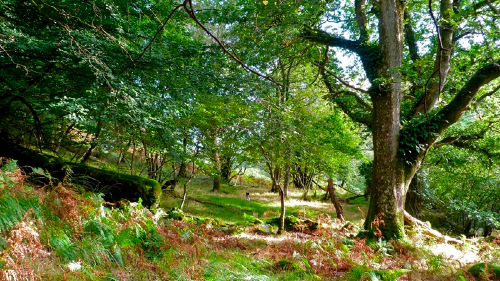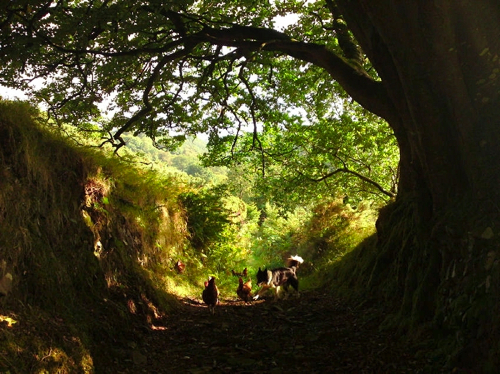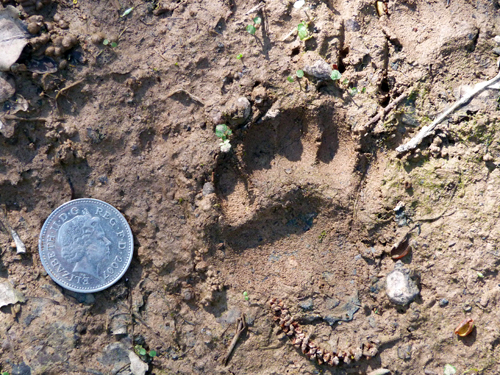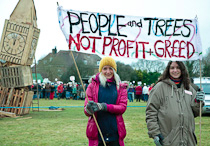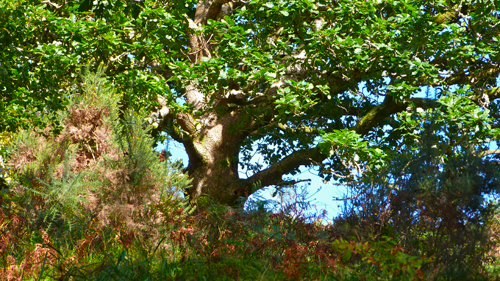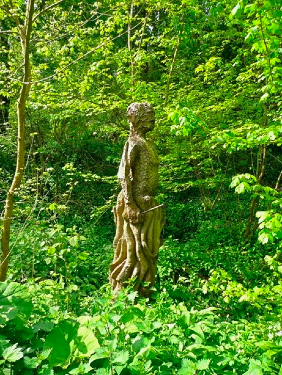Click here to view Our Forests background briefing to this press release (includes FOI submission and questions to NGOs)
For immediate release: Wednesday, 5th October
It is over 3 months since Our Forests sent in its submission[1] seeking answers on the public forest disposal debacle, yet no final response has been provided, despite officials initially telling us, “we will be able to sort this out fairly quickly.”[2]
On 29th July 2011, Our Forests submitted questions under both the Freedom of Information Act 2000 and the Environmental Information Regulations 2004 seeking clarification on the Government’s ill-conceived plans to dispose of England’s public woods and forests.
Under the terms of those pieces of legislation, a response could have been expected no later than 20 working days following our submission – that would have been Monday, 5th September. However, officials extended the timeline on the grounds of the claimed ‘complexity’ of our questions to the maximum permissible of a further 20 days. That means we should have received an official response by Monday, 3rd October.[3]
Nothing has been forthcoming. Therefore, Our Forests is putting in a complaint to the Information Commissioner’s Office.
Jonathon Porritt, founder member of Our Forests said,
“Our questions were straightforward. Earlier in the year, over half a million people rose up in protest at the Government’s proposals to dispose of all the public woods and forests managed by the Forestry Commission. We simply asked which organisations or other bodies the Government and its officials had met with to discuss taking on some of those public woods and forests. We also asked how much it costs the Forestry Commission to look after them as they currently do, delivering the wide range of benefits not just to the millions of people who visit the sites each year, but to society generally.
These are questions that seem unlikely to endanger national security. Perhaps the apparent reluctance to answer them reveals a fear that they would further expose the Government’s cavalier attitude to England’s natural assets, as well as call into question the judgement and motives of those organisations which might have been considering boosting their own land-holdings at the public’s expense?”
As well as the official submission to government, Our Forests wrote directly to a number of conservation bodies reported or alleged to have been in discussion with Government over taking on some of the public forest estate:The National Trust; RSPB; The Wildlife Trusts; The Woodland Trust. To their credit all of these organisations have responded, in contrast to the Government. However, their replies do not provide complete clarity or dispel some of the rumours and allegations that have been in circulation. The full responses from the above bodies, as well as details of the dealings with officials to date are provided in the attached background briefing.[4]
Some groups were more candid than others about approaches by officials as to their possible interest in taking on sites. The RSPB, for example, acknowledged clearly that,
“…we were contacted informally by the Forestry Commission’s then Chief Executive, last autumn. In scoping possible options ahead of the Government’s anticipated proposals, he asked whether RSPB would express an interest in any sites that we might be prepared to take on. We declined to respond, as we were – and still are – opposed to the freehold disposal of state-owned land.”[5]
However, there is an apparent disconnect between the Government’s version of events and that of the conservation bodies. The National Trust’s director-general, Fiona Reynolds told us that the organisation was,
“… as surprised as anyone when the Government published its consultation document, not least because the Government had not talked to us about it beforehand.”[6]
Yet that account is at odds with the one given by Caroline Spelman, the Secretary of State overseeing the disposal proposals, who when asked by members of the House of Commons’ Environment and Rural Affairs Committee whether,
‘…she had sought the opinions of “stakeholders” such as the National Trust ahead of pursuing the sell-off said firmly that she had, and that she spoke to all “stakeholders” constantly.’[7]
Different interpretations of meetings and discussions by those attending, be they politicians or heads of organisations, are not sufficient to confirm a conspiracy theory or suggest some ‘secret deal’ outside of the public gaze.
But there does appear to be evidence that officials handling the disposal proposal believed that some conservation bodies were indeed ‘expressing an interest’ in taking on some of our public woods and forests, and so prepared to go along with the government’s plans.
An Impact Assessment of the disposal proposal for the Public Forest Estate, produced in August 2010, considered amongst other factors the different possible methods of disposal and states:
“Members of Wildlife and Countryside Link have expressed an interest in 10,000 ha under a Sponsored Transfer arrangement”.
It goes on to note under the section ‘Disadvantages’ re: NGO Sponsored Transfer,
“NGOs currently unwilling without compensation from government to cover costs of staff and the provision of public goods – therefore, there may be no net saving to the exchequer of this transfer.”[8]
This does appear to indicate that Government met with Wildlife Link members individually or with the body collectively, ahead of the public announcement of the disposal proposal, and came away with the impression that some members of Wildlife Link were indeed interested in taking on c. 10,000 hectares – assuming that financial incentives were provided. The extremely concerning conclusion that could be drawn from that (assuming it is an accurate reflection of views expressed at the time), is that some NGOs were willing to allow the Government proposal to dispose of all 258,000 hectares of the public woods and forest to proceed, assuming they secured just 10,000 hectares under the proposed ‘Sponsored transfer agreement’.
Given this continuing lack of clarity the Government’s failure to respond to Our Forests simple FoI request remains completely unacceptable.
Notes to Editors
1. Our Forests submission, 29/7/11
To Whom It May Concern – This is a request made under the Freedom of Information Act.
Please can you provide details of all meetings and/or discussions in person, via the phone or email that the Government and its officials (including Forestry Commission staff) have held with any organisations – including conservation NGOs and/or commercial and professional bodies – concerning any of those organisations and bodies potentially taking on land currently falling within the Forestry Commission public forest estate?
Please also provide details of all meetings and/or discussions in person, via the phone or email that the Government and its officials (including Forestry Commission staff) have held with any overseas based organisations – including conservation NGOs and/or commercial and professional bodies – concerning any of those organisations and bodies potentially taking on land currently falling within the Forestry Commission public forest estate?
Please specify the dates of any such meetings above and all those attending. Please also supply copies of notes you hold of any such meetings and discussions in the form of paper and electronic records, including emails.
Please supply the average costs per hectare for managing the woodlands and forests that lie within the public forest estate in England and which are managed by the Forestry Commission.
Please specify the overall costs per annum to the taxpayer for managing the woods and forests of the public forest estate in England.
As well as the average costs across the entire 258,000 hectares of the public forest estate, please also supply management costs per hectare for the following indicative examples of woods and forests on the public forest estate:
– a site with minimal access, low visitor numbers, and a primary output of timber production;
– a site delivering an average mix of multi-purpose forestry benefits i.e. access/timber/biodiversity/ecosystem services;
– a site developed/restored as community woodland in close proximity to urban populations.
We look forward to hearing from you promptly (within 20 working days, as specified under the Freedom of Information Act) and providing the information requested.
2. Email sent to Our Forests by Forestry Commission
2 August 2011 10:39:34 GMT+01:00 Subject: RE: Freedom of Information Request – Ref: OF290711
3. Timelines
Under the provisions of both the Freedom of Information Act 2000 and the Environmental Information Regulations 2004, officials are expected to provide a formal response 20 working days from the submission being received. If clarification is required, then the 20-day timeline starts from the date the officials receive such clarification. Our Forests provided clarification as requested on 5th August, which would take the date for response forward to Monday, 5thSeptember. That deadline for a response was then put back a further 20 days on the grounds of the ‘complexity of your request’ as is allowed under the terms of the Act and regulations. That additional 20 days extended the time-line for the response to our submission to Monday, 3rdOctober.
5. Response from RSPB to Our Forests received 31st August 2011
6. Response from National Trust received 31st August 2011
7. http://www.guardian.co.uk/environment/blog/2011/mar/31/caroline-spelman-committee-forests-flooding
8. http://archive.defra.gov.uk/corporate/consult/forests/20110127-forestry-ia.pdf
Our Forests was formed to ensure that the views of the more than half a million people and myriad grassroots groups who rose up in opposition to the reprehensible plans to sell-off or otherwise dispose of the Public Forest Estate in England are fully understood and taken into account by the Coalition Government and its appointed ‘Independent Panel on Forestry Policy’.
Individual members, in alphabetical order, are:
- Hen Anderson (Co-founder ‘Save Our Woods’, who also runs a smallholding and woodland on Exmoor)
- Richard Daniels (Chair of the grassroots campaigning group Hands off our Forest (HOOF) in the Forest of Dean)
- Dr Gabriel Hemery (chartered forester, cofounder and Chief Executive, the Sylva Foundation);
- Tony Juniper (independent environmental advisor, campaigner, writer and former Director of Friends of the Earth);
- Rod Leslie (former Chief Executive, Forest Enterprise);
- Robin Maynard (environmental campaign consultant);
- Jonathon Porritt (Founder Director Forum for the Future and former Chair of UK Sustainable Development Commission).
www.gabrielhemery.com
www.handsoffourforest.org
www.saveourwoods.co.uk
www.38degrees.org.uk
www.jonathonporritt.com
www.tonyjuniper.com














